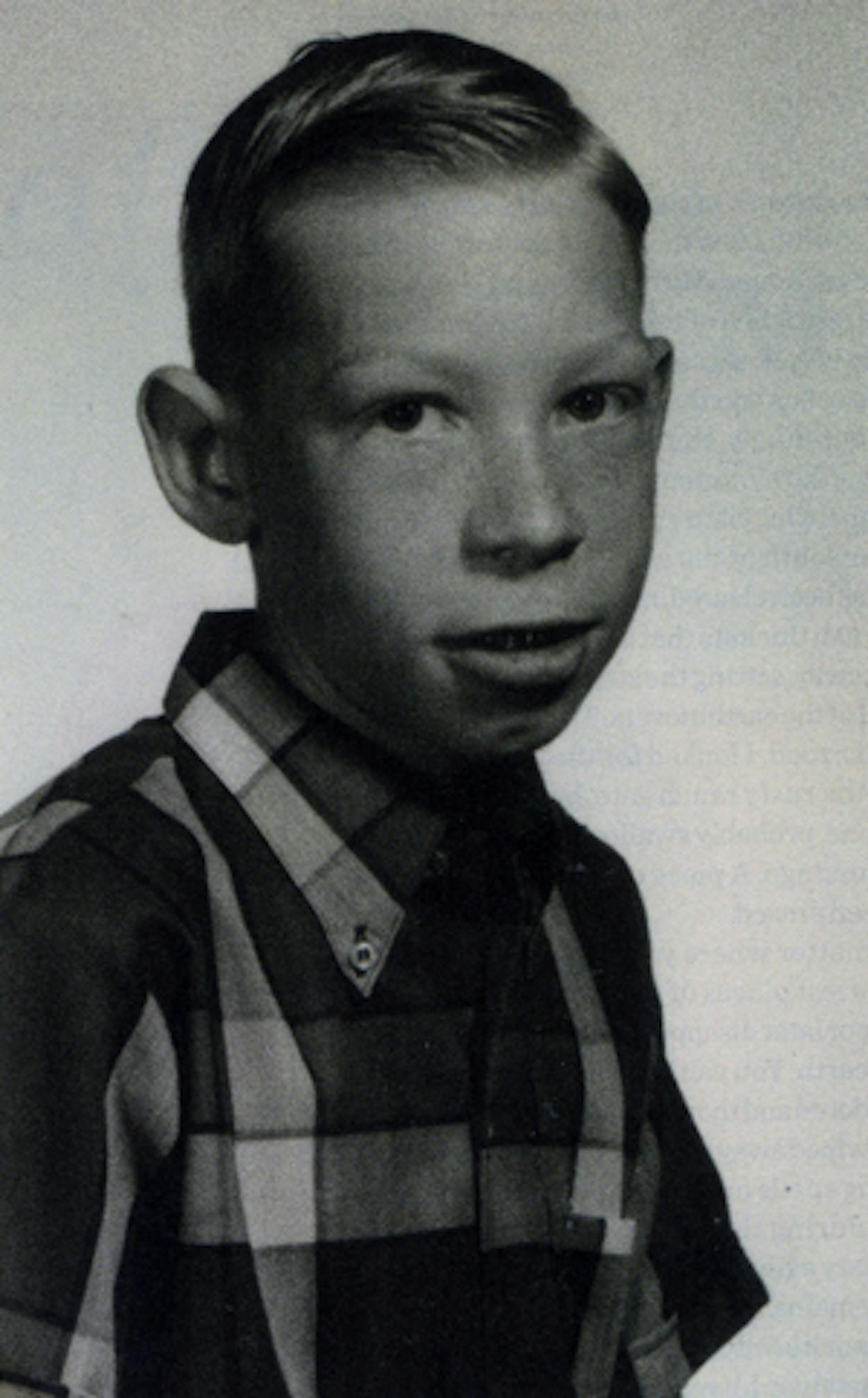I grew up in a house on East Castle Lane, which is one block off Military Highway. Now it’s an upscale area, but back then it was in the country. Until I was in high school my street wasn’t even paved. There were fireflies in the summer and trees everywhere. My dad had two jobs, so during the week he couldn’t get much time, and dinner would be ranch-style beans and tuna fish and a few things that my mom could do and then she’d grade English papers at night. She was a teacher. But Sunday was our family day: Sunday school, church, yard work, throwing around a baseball or football, and watching the ball game while barbecuing. That’s how I grew up.
During the summers, we would go to a lot of baseball games. Dad coached Little League and PONY Baseball. He had some notoriety because he helped form the PONY League in San Antonio and took his team to the PONY Baseball World Series. Our house was full of bookshelves with trophies everywhere. Both of my parents taught Sunday school. They taught me for six years. When I’d graduate to the next Sunday school class, they would graduate and continue to teach me.
There was a lot of church growing up. My mom’s family was fundamentalist Baptist, and my father came from a Methodist family. In fact, when my dad came back from the war, he was recovering from a disability when he met her at Hot Wells Baptist Church. My maternal grandmother insisted that my brother and I be baptized in the Baptist tradition as well as the Methodist tradition so that we wouldn’t lose our souls.
I was also interested in music. I listened to all kinds, from the Beatles—which was a little cutting-edge—to country to classical music. Music was part of the family life. My dad played by ear. We’d have a family band where I’d play the guitar, my mother or my brother would play the banjo, and my father was on the piano. He liked the oldies, like “Danny Boy,” and that was probably the one that we played the most. We practiced a lot. We were always working, doing something. My family didn’t believe in sitting around and watching a lot of TV.
When I was a kid, we always had jobs. For a while I ran the concession stands in the city parks, Elmendorf and Woodlawn and Roosevelt and San Pedro. All of the parks had concession stands. You would get a permit for a corner, and then you would sell snow cones and Cokes and snacks. I really got to know the city, and we ate all over town. Like a lot of active teenagers, I had an early meal and a late meal. The early meal would be at the Whopper Burger at Blanco and 410 and the late meal would be Mi Tierra.
A big change for me came when a friend of my dad’s that we’d known from coaching and bowling got elected to the state Senate in 1966, Joe Bernal. Joe was really active in demanding that people on the West Side got some of the services that people in other parts of San Antonio had. There started being changes in San Antonio politics around then, in the late sixties. There was a group of people who got active in civil rights called the Methodist mafia. People in my church were active in that.
One thing that expanded my horizons was that when I was a junior in high school, I won a national speaking contest sponsored by the American Legion. I’d heard about it because a young man had won it a couple of years before from my town, a fellow whose politics are a little different from mine: His name is Alan Keyes. My dad was his mentor, and he would come to our house. My dad encouraged so many young people to read the newspaper, to read magazines, and even when he was a principal, he would teach a course called current events, where he tried to get people thinking. He didn’t tell them what to think, but he wanted them to be active citizens. About every other week I would go on the road, and the American Legion audiences responded to me and I liked them. They would have me go to state conventions in different states. At the time, there was a lot of turmoil in our country about the Vietnam War, and campuses were erupting. I got to see a lot of the country on that speaking tour.
I was also the editor of the school newspaper. One time there was this heated discussion because a couple of my editorials had a little too much contemporary relevance, so to say. One of them had to do with the female drill squad and whether this qualified as either an academic activity or a physical sport. My opinion was that there ought to be more women’s sports. I thought drill squad was more like “women as ornament.” A drill squad person did not like that. Some parents were upset. The principal insisted that the paper was an extracurricular activity, not some commercial newspaper entitled to First Amendment rights. The journalism teacher supported me, but she said that she didn’t have a good eye for picking up on what might be a little controversial and that if I did write something controversial, she would probably lose her job. So I tried to avoid too many controversial topics after that. As told to Mimi Swartz on April 2, 2010
- More About:
- Politics & Policy
- Bill White









